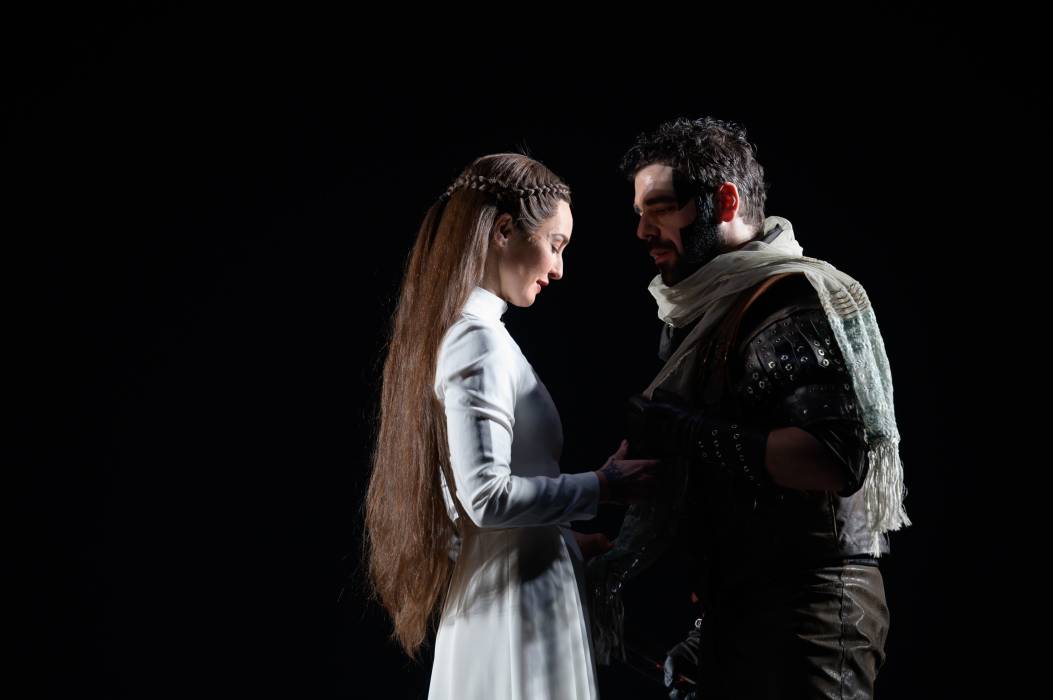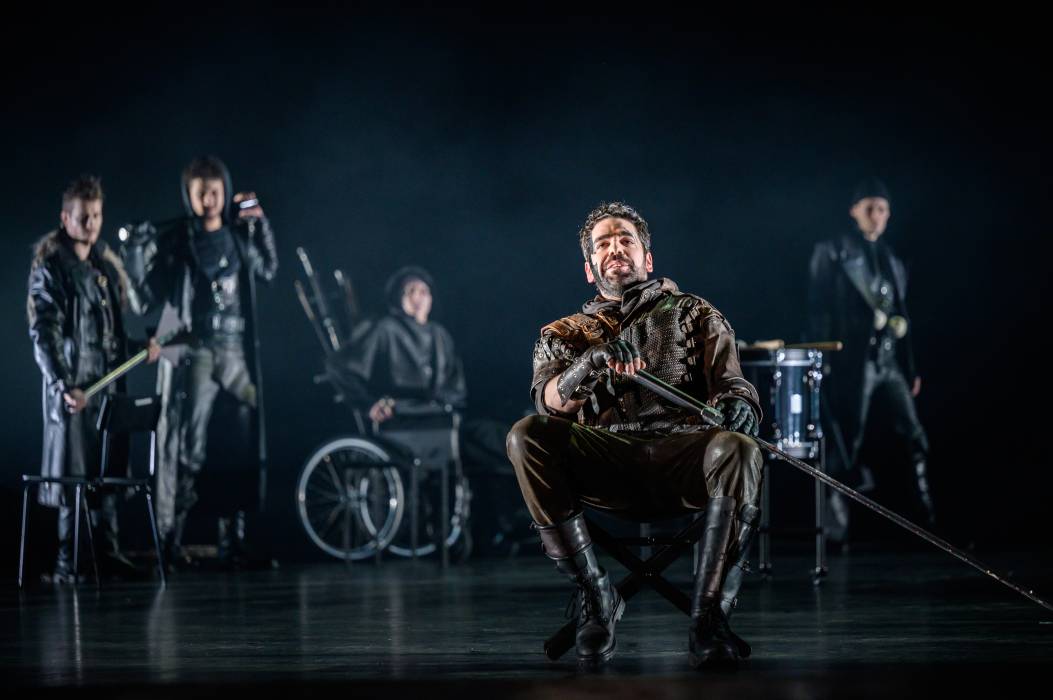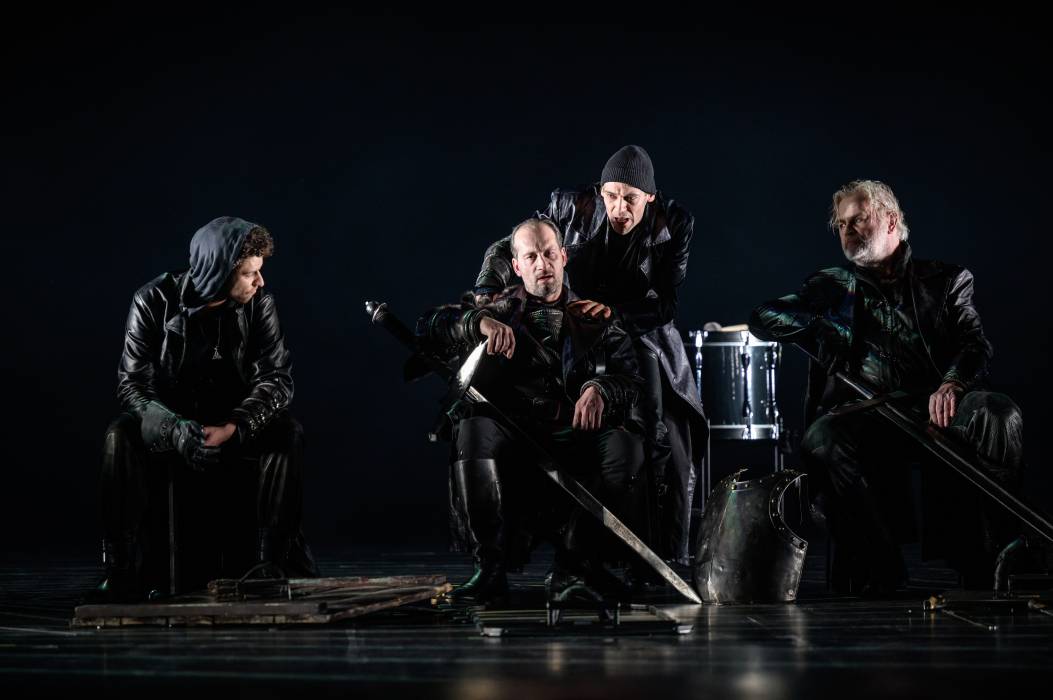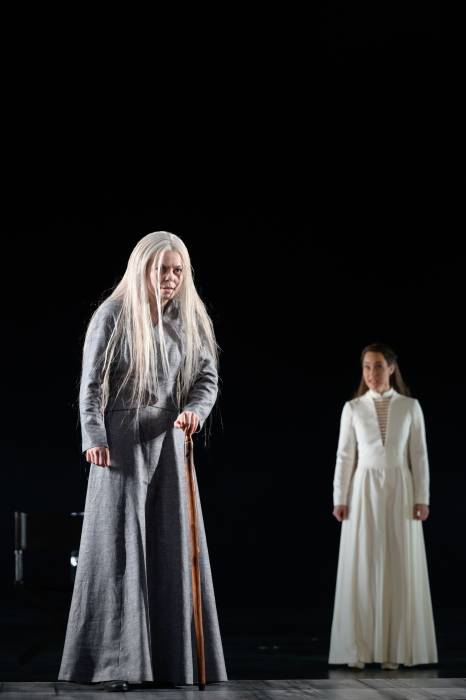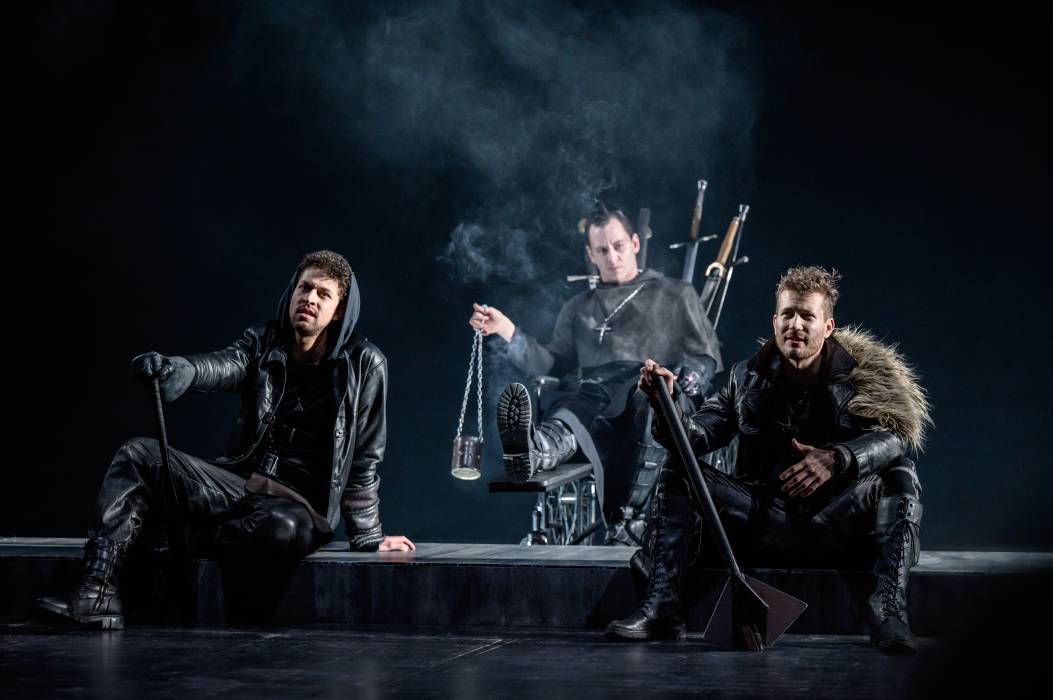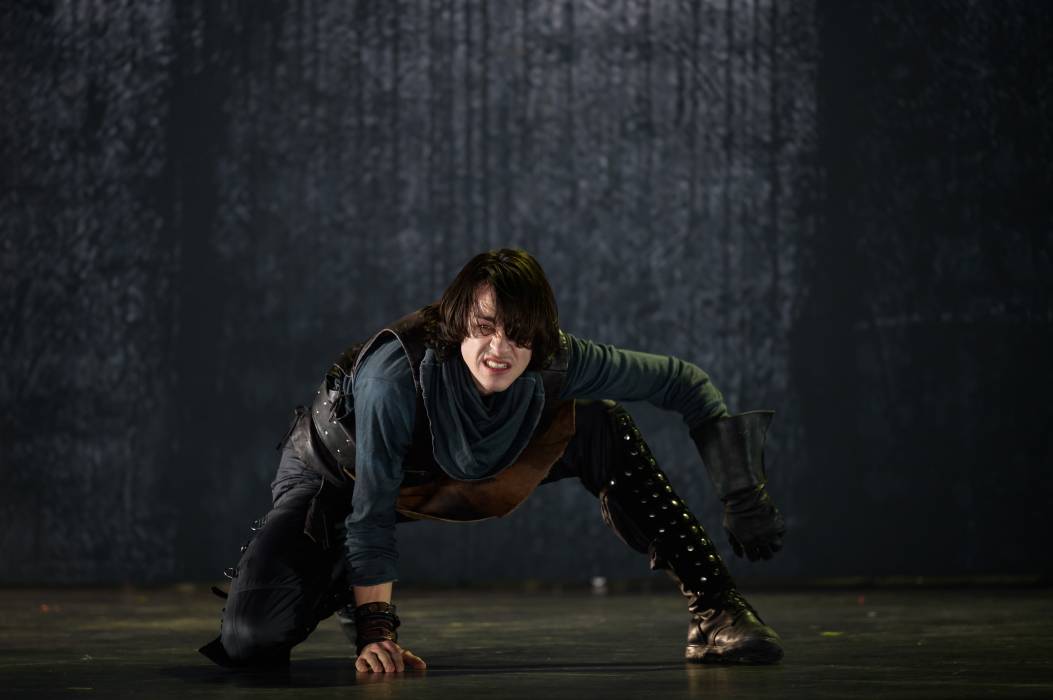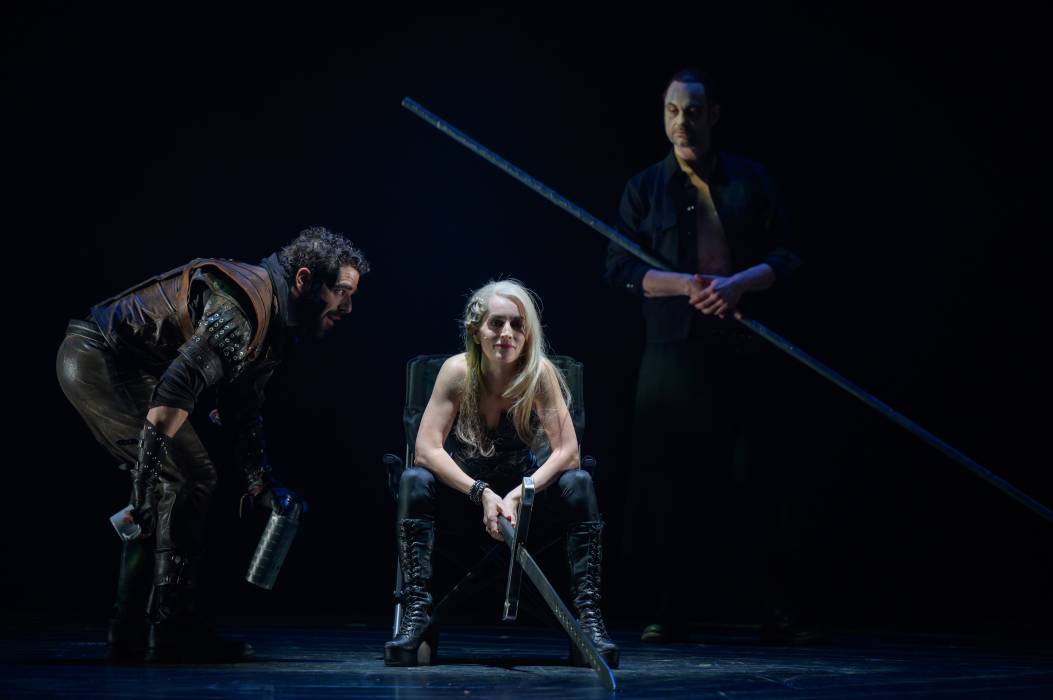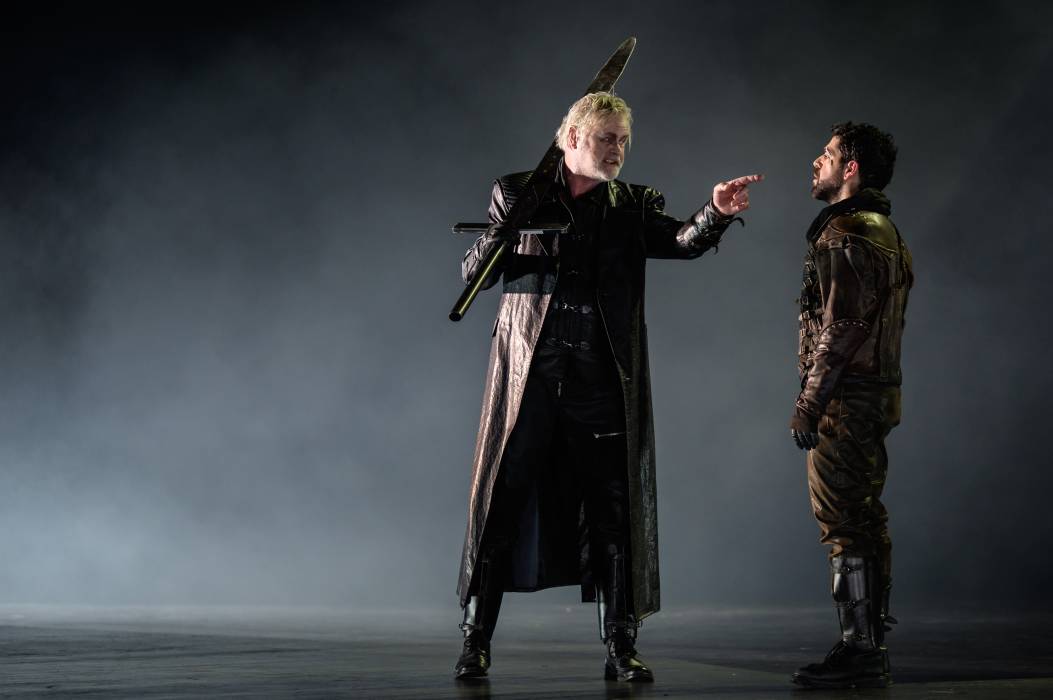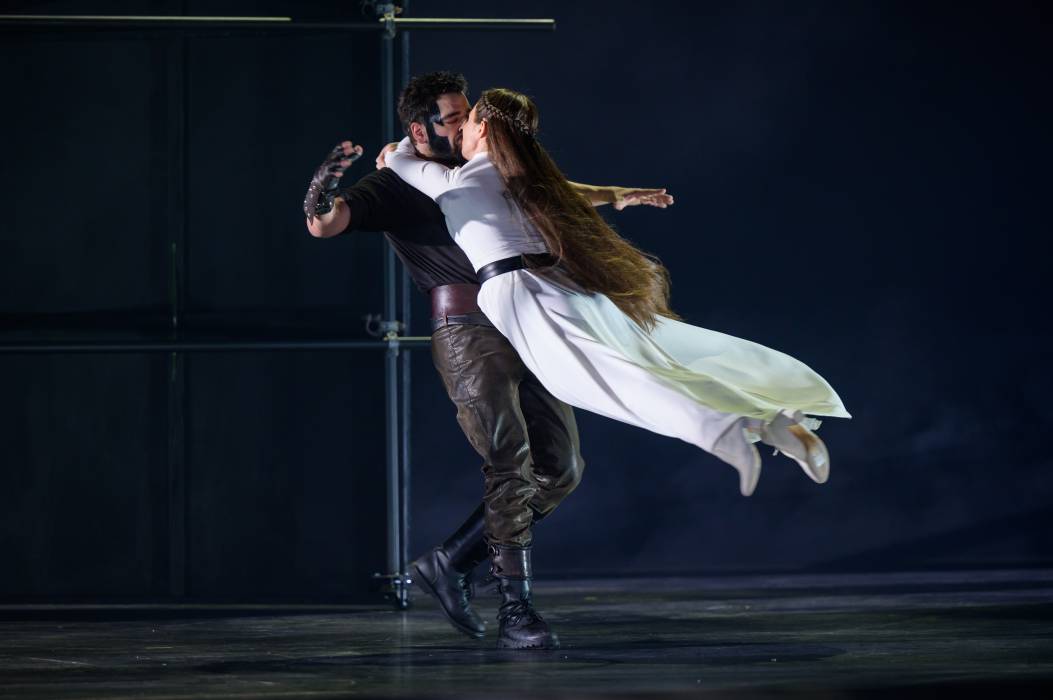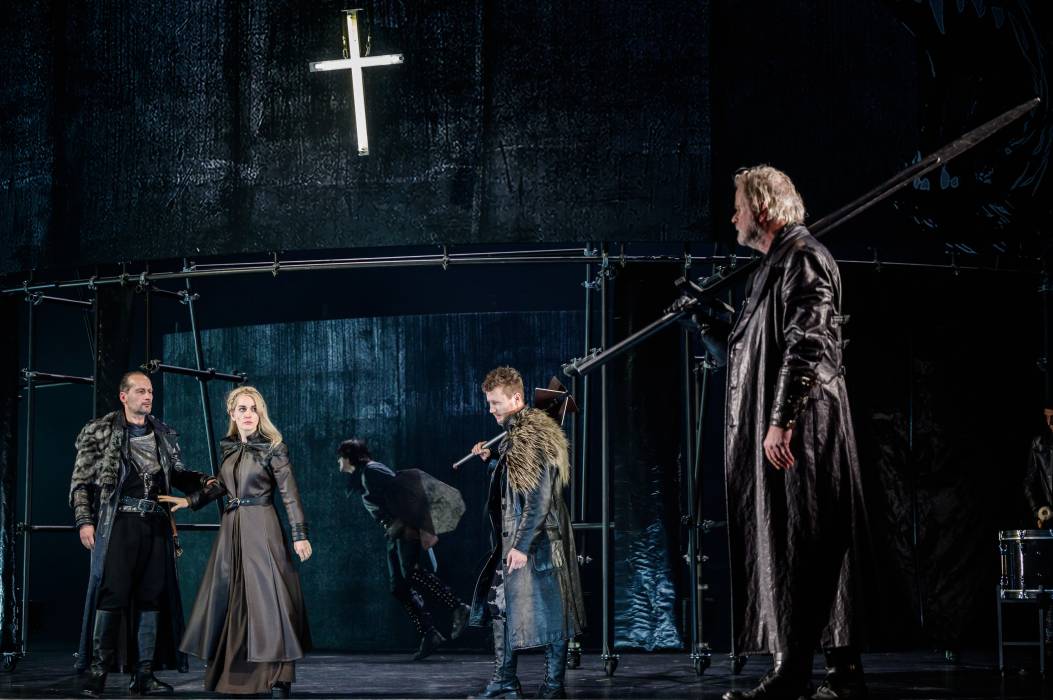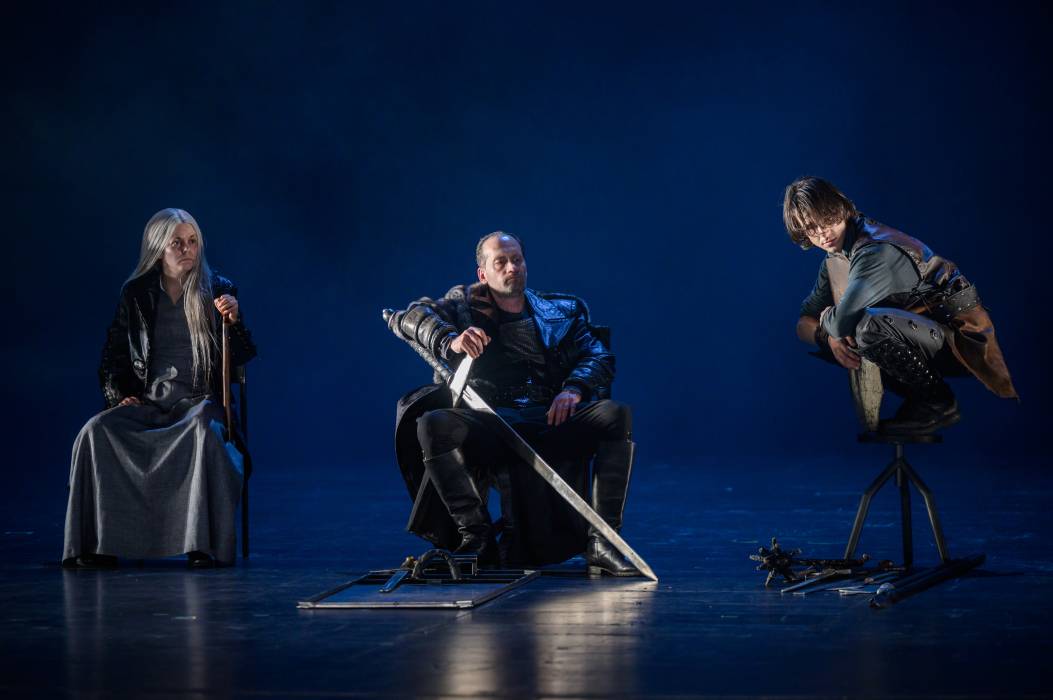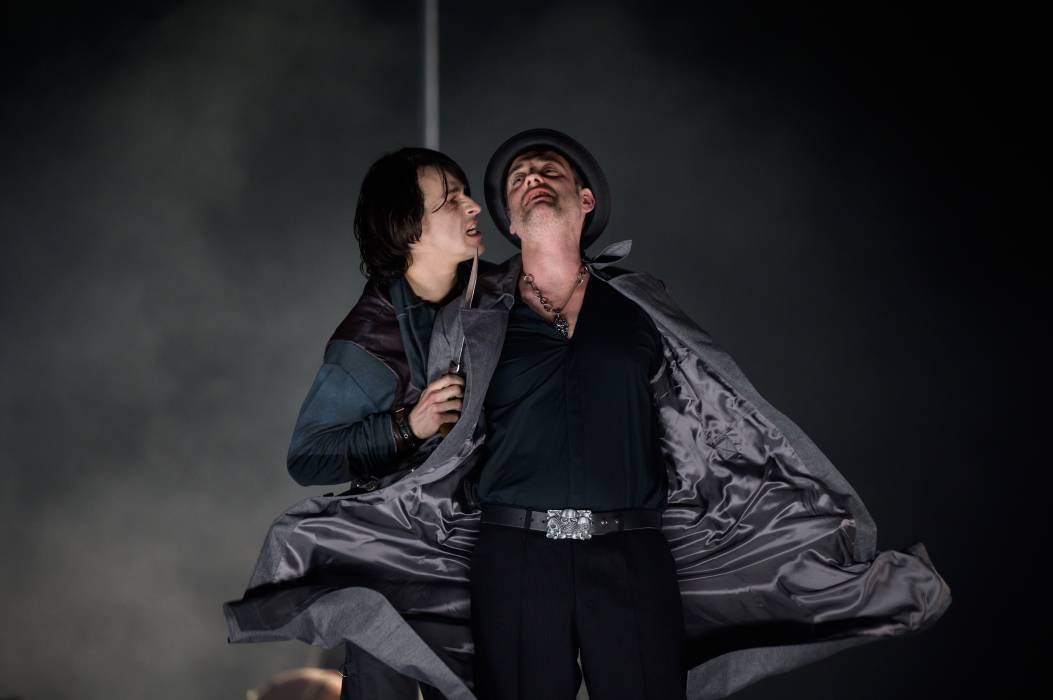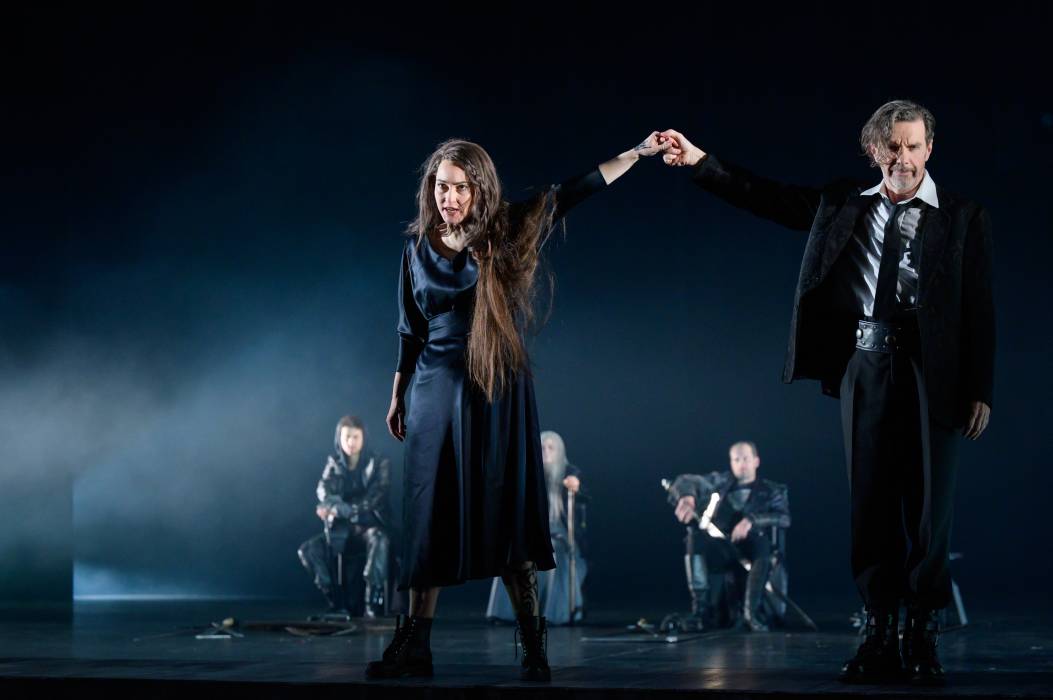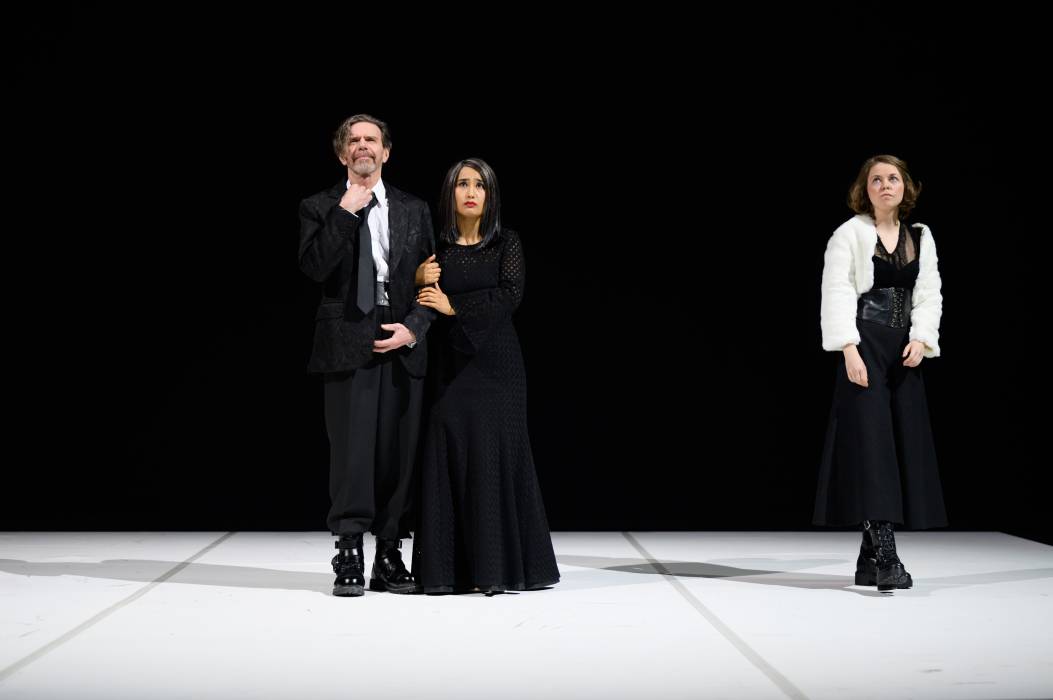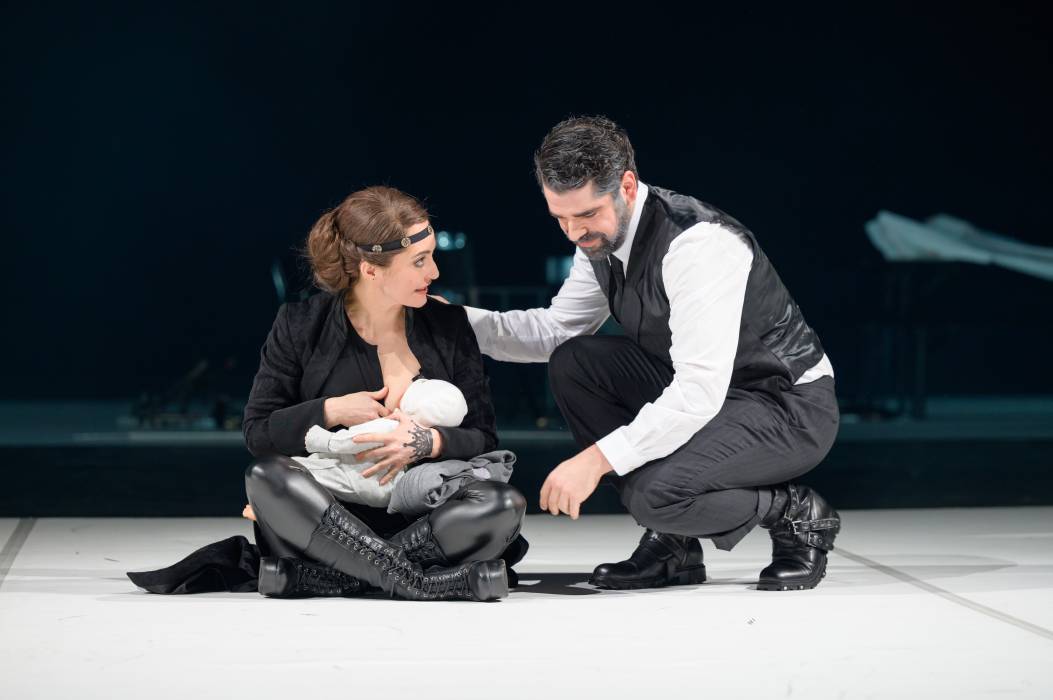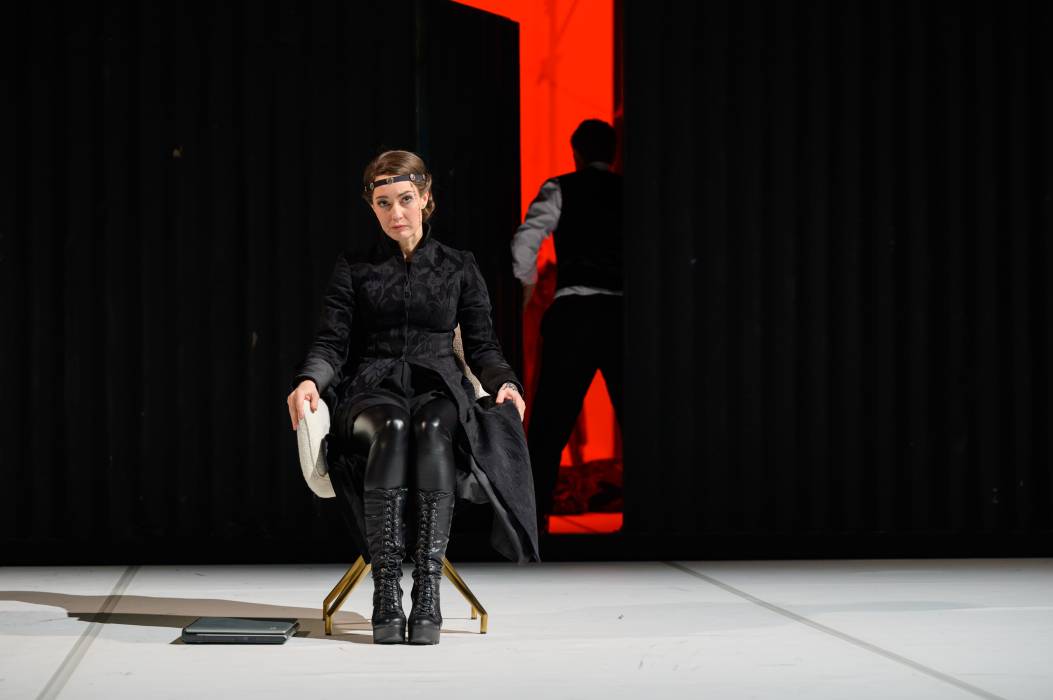»Regisseur und Intendant Hasko Weber hat mit seinem Ensemble am Deutschen Nationaltheater Weimar Hebbels ‚Die Nibelungen‘ in einer schnörkellosen, bildstarken Inszenierung auf die fast leere Drehbühne gestellt, die sich durch große, angelaufene Stahlhalbrunde in Burg und Schiff verwandeln kann (Bühne: ebenfalls Thilo Reuther). Dabei kommt bisweilen ›Game of Thrones‹-Feeling auf. […] Hasko Weber verlässt sich mit diesen ›Nibelungen‹ ganz auf Hebbels Stoff, seine Sprache, seine Figurenzeichnung – und sein vorzügliches Ensemble, das diesen düsteren Totentanz der Gewaltherrschaft ohne Verluste umzusetzen weiß. Das ist nie langweilig […]. Es bleibt in seiner epischen Breite vor allem beeindruckend.«
(Theater heute, April 2023, Torben Ibs)
»Der Regisseur und seine Dramaturgin Beate Seidel versuchen nicht, Hebbels Werk, etwa durch Hinzufügungen zum Text, ein ›modernes Lebens-Problem‹ zu implantieren, sondern überlassen es den Zuschauern, Analogien in der Gegenwart aufzufinden. Das wirkt, jedenfalls in den ersten zwei Stunden, wie aus der Zeit gefallen. Das muss nicht von Nachteil sein. Und mag sogar verblüffen. […] Das Kapital dieser Inszenierung sind das durchweg fabelhafte Ensemble, aus dem Einzelne hervorzuheben ungerecht wäre, und die von einer Basstrommel beherrschte Musik von Sven Helbig. Ein ungewöhnlicher Theaterabend.«
(KULTUR-EXTRA, 3.6.2023, Thomas Rothschild)
- Hasko Weber (Regie)
- Thilo Reuther (Bühne & Kostüme)
- Andrea Wöllner (Künstlerische Mitarbeit Kostüme)
- Sven Helbig (Musik)
- Beate Seidel (Dramaturgie)
- Christian Schirmer (Licht)
- Andreas Günther (Who-be) (Video)
- Philipp Otto (König Gunther)
- Nadja Robiné (Kriemhild, dessen Schwester)
- Janus Torp (Giselher, deren Bruder)
- Calvin-Noel Auer (Gerenot, deren Bruder)
- Annelie Korn (Ute, deren Mutter)
- Sebastian Kowski (Hagen Tronje)
- Fabian Hagen (Dankwart, dessen Bruder)
- Marcus Horn (Volker, Spielmann)
- Martin Esser (Kaplan)
- Nahuel Häfliger (Siegfried)
- Johanna Geißler (Brunhild, Königin)
- Bastian Heidenreich (Frigga, deren Vertraute)
- Nahuel Häfliger (König Etzel)
- Krunoslav Šebrek (Markgraf Rüdeger)
- Tahera Hashemi (Götelinde, dessen Frau)
- Annelie Korn (Gudrun, deren Tochter)
- Bastian Heidenreich (Werbel/Hildebrant)
